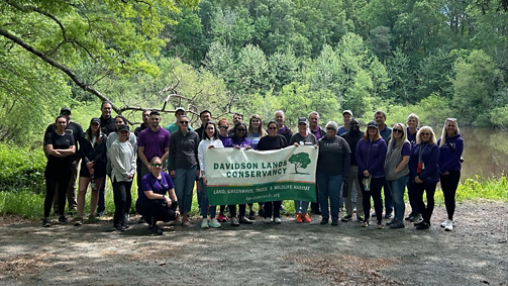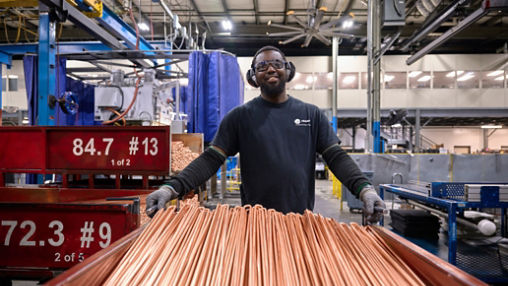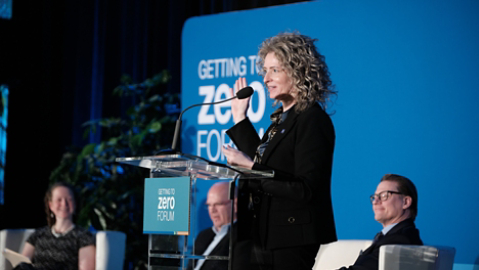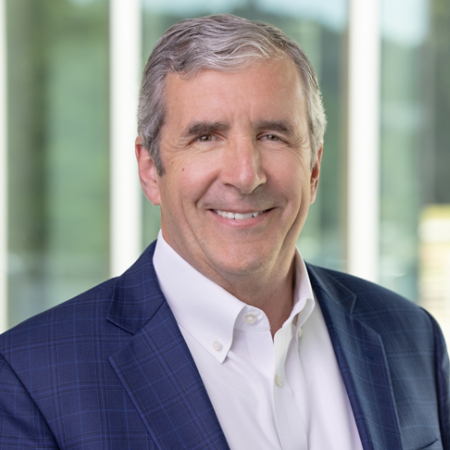Why does Trane Technologies have a director of Global Climate Policy? Tell us about your role.
Fifteen percent of global greenhouse gas emissions come from heating and cooling of buildings, and another 10% come from food loss. The technology exists today to address these challenges. Global and local policies must encourage scale for the world to move faster. For example, the use of low global warming potential refrigerants must be enabled locally through building codes, transportation rules and training. Heat pumps must be enabled and accelerated through workforce development and incentives. There are over 1,000 code jurisdictions in the United States alone, creating a significant body of work to enable new refrigerants.
Our innovative solutions are making a growing impact on reducing emissions in difficult-to-decarbonize spaces, but solutions must be adopted at scale to decarbonize heating and cooling.
While we are busily disrupting ourselves to meet our Gigaton Challenge, engaging our colleagues by integrating emissions reductions strategies into our daily decision-making, we also leverage our leadership position to enable adoption of technologies to meet climate goals.
I am fortunate to work with such accomplished colleagues at Trane Technologies. Governments around the world rely on us as a trusted resource to advance policies that are sound. We are consulted for our expertise on local, national and international policy issues. While I focus primarily on the regulatory side of things, we also have robust legislative expertise both here in the United States and in capitals around the world as part of a larger government relations function.
Early engagement helps to ensure that ambitious policies produce the desired societal outcomes with the least disruption to the critical services we provide.
How does innovation intersect with advocacy for Trane Technologies?
Our team embraces the challenge to decarbonize some of the most complex engineering processes in the world. Whether it’s carefully controlling pharmaceutical process temperature or cleverly using ice to sustainably heat a building, we are at the technical forefront with an innovative solution.
We take a broad view to support the ecosystem of resources to accelerate decarbonization by enabling even adjacent technologies, renewable energy and a well-trained workforce. It’s a multi-faceted strategy intended to support and not prevent progress to decarbonize buildings and the cold chain for everyone.
What are your thoughts on recent reports assessing global efforts on climate change?
The Integrity Matters: Net Zero Commitments By Businesses, Financial Institutions, Cities And Regions Report From The United Nations’ High-Level Expert Group On The Net Zero Emissions Commitments Of Non-State Entities has made it clear that “non-state actors cannot lobby to undermine ambitious government climate policies either directly or through trade associations or other bodies.” We have been recognized for integrity and leadership in climate advocacy, and we take that guidance to heart.
The report is clear that transparent, externally validated, science-based emission targets and progress are a necessity.
New reports are echoing the UNFCCC and the Global Stocktake messages that incremental change will lead to a temperature rise greater than 1.5C. The path toward a healthier and more sustainable world requires disruptive thinking: relentless innovation, transformative policies and a workforce trained to achieve these ambitious goals for all.
What’s next for Trane Technologies on climate policy?






















